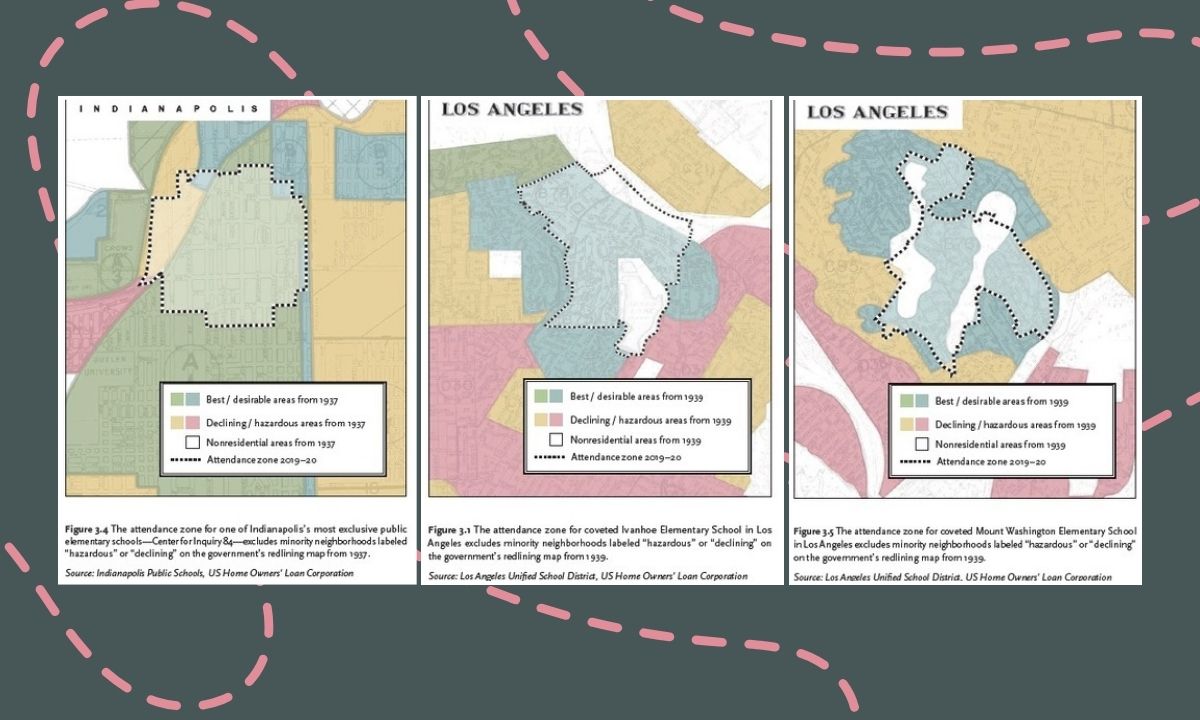Coalition Challenges Residency Requirements for Public Schools
Members say school district boundaries reflect redlining of years past and unfairly keep some kids in underperforming schools.

Get stories like this delivered straight to your inbox. Sign up for The 74 Newsletter
More than 40 education advocacy organizations have teamed up to fight longstanding residency requirements that tie children to their local public schools — rather than letting them transfer to places that might serve them better.
The No More Lines Coalition aims to end what it calls “discriminatory public school district boundary lines” in all 50 states by 2030.
Members say past efforts to address this issue are weak and ineffective. A 2022 report showed 43 states allowed students to transfer within their school district, while 19 and the District of Columbia permitted them to transfer elsewhere. But many programs are voluntary on the part of receiving schools. Some require a sign-off from a student’s home school district or charge tuition for families seeking to make a switch.
Many do not allow parents to appeal a decision.
“The existing open enrollment laws are deeply flawed and limited,” said Tim DeRoche, president of Available to All, a coalition member. “They are circumscribed in very deliberate ways in many, many states.”
Proponents of robust open enrollment laws tout a recent survey of 1,000 people from across the nation that showed two-thirds favored allowing a child to attend any public school in the state. The notion was particularly appealing to Black respondents: 76% favored the idea.
A Charles Koch-funded organization called yes. every kid., which pushes for expanding learning opportunities, including school choice, is leading the effort. Coalition members discuss the issue with policymakers and publish reports examining state laws that criminally prosecute parents for using addresses other than their own to enroll their children in public school.
They also explain how states can address the lasting impacts of redlining, a decades-old practice that branded some communities as financially risky — a label linked to current education disparities and zoning restrictions.
Jorge Elorza, chief executive officer of Democrats for Education Reform, another coalition member, said children should be free to pursue their education in schools that meet their needs.
“It comes down to expanding the options that families have over the schools they have access to,” he said.
To that end, for example, yes. every kid is working with lawmakers in South Carolina to advance open enrollment legislation.
Erica Jedynak, the group’s chief operating officer, noted, too, that Idaho recently enacted a law widening the opportunity for children to attend schools of their choosing.
Currently, parents in that state must apply for a transfer, with priority given to those who wish to switch within their home district. School officials may deny such a request if the student had been expelled, has a history of significant disciplinary issues or was chronically absent, or if the new district does not have capacity.
Challenges against zoning rules have arisen in other parts of the country as well, including in New Jersey, where the Latino Action Network and NAACP, among others, sued the state for school segregation in 2018. They cited residency requirements that often keep Black and Latino students in subpar schools. A judge rendered a mixed ruling on the case last fall.
Opponents of open enrollment laws fear they could drain low-performing schools of their best students, but coalition members say that not all families whose children attend troubled schools seek to switch, even when given the chance.
Students who feel loved and supported by their educators often stay, Jedynak said. But, she added, simply having strong open enrollment policies forces public schools to improve or specialize in order to attract students..
Public schools in Arizona, which have among the least restrictive open enrollment policies in this country, have been advertising for students for years.
Derrell Bradford, president of 50CAN, another coalition member, recalls his mother and grandmother trying to devise a way to get him into a better middle school outside their southwest Baltimore zone.
His aunt, a teacher in the city schools, knew how to navigate a pathway to a better education, and Bradford ultimately tested into a magnet school. But not all children have relatives who understand the system.
“This is a hidden but treacherous problem that many American families are navigating all the time,” he said. “It is widely known and understood, but rarely talked about.”
Bradford said school choice is most often available for the lucky and the rich, including those families who can afford homes in wealthy neighborhoods with high-performing schools. The remainder are often left behind, with some opting to break the law for their children — a choice that can bring about dire consequences.
Address sharing can land parents, friends and family members in jail. Kelley Williams-Bolar, for example, was imprisoned in 2011 for sending her two young daughters to a school they were not zoned to attend outside Akron, Ohio.
She said parents should not be penalized for trying to secure a better future for their children.
“This is not malicious, trying to steal, trying to do something horrific,” she said, adding that many people in her community face the same dilemma. “I don’t know a parent yet who would say it’s OK for (their children) not to get all of the fundamentals they need. Everyone wants their child to have the best education.”
If that means upending rules that have governed admissions for generations, that’s fine, she said.
“It’s time to go back in, re-evaluate and make change,” she said.
Disclosure: yes. every kid. is a grantee of the Stand Together network. Stand Together Trust provides financial support to The 74.
The Carnegie Corporation of New York, Stand Together Trust, Walton Family Foundation and Nellie Mae Education Foundation provide financial support to 50CAN and The 74. Campbell Brown sits on 50CAN’s board of directors. Brown co-founded The 74 and sits on its board of directors.
Get stories like these delivered straight to your inbox. Sign up for The 74 Newsletter

;)
